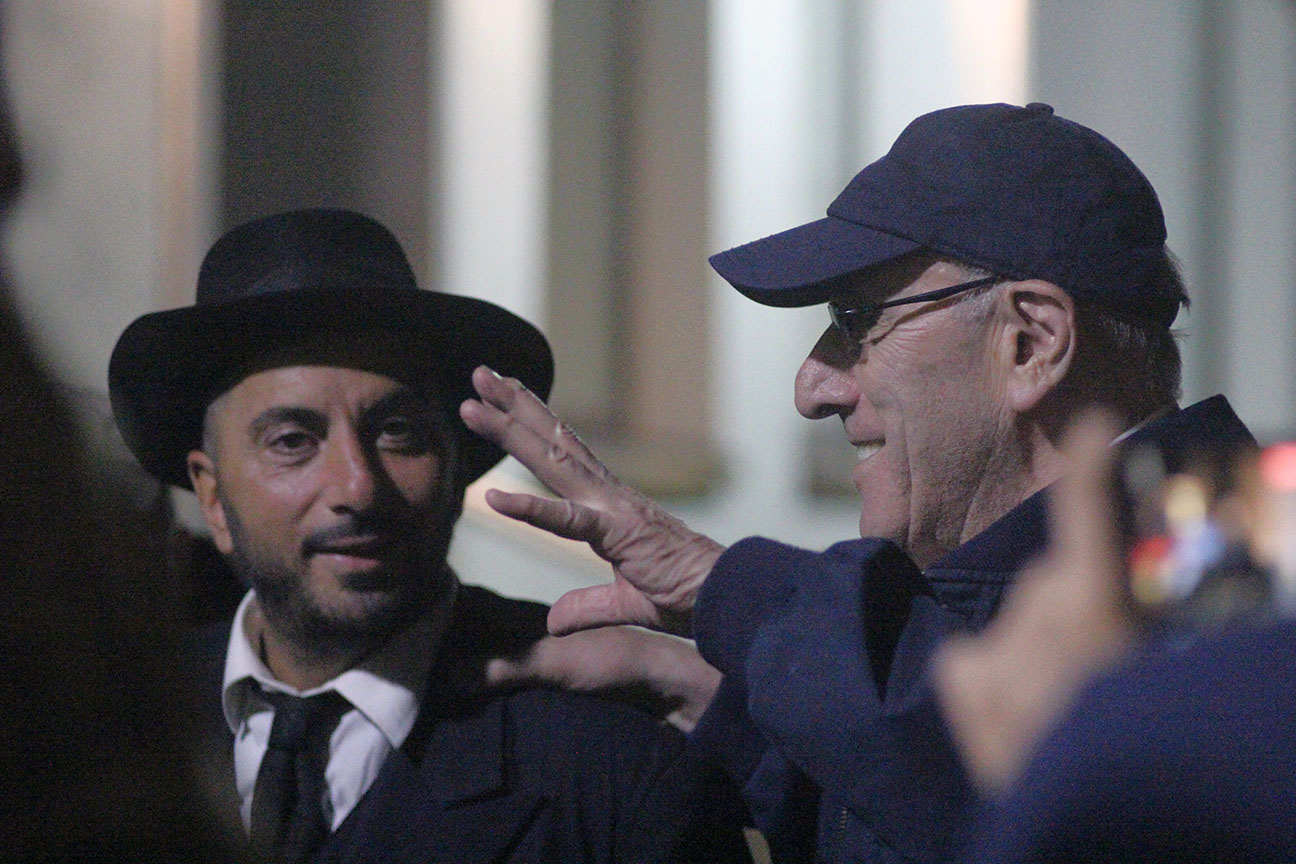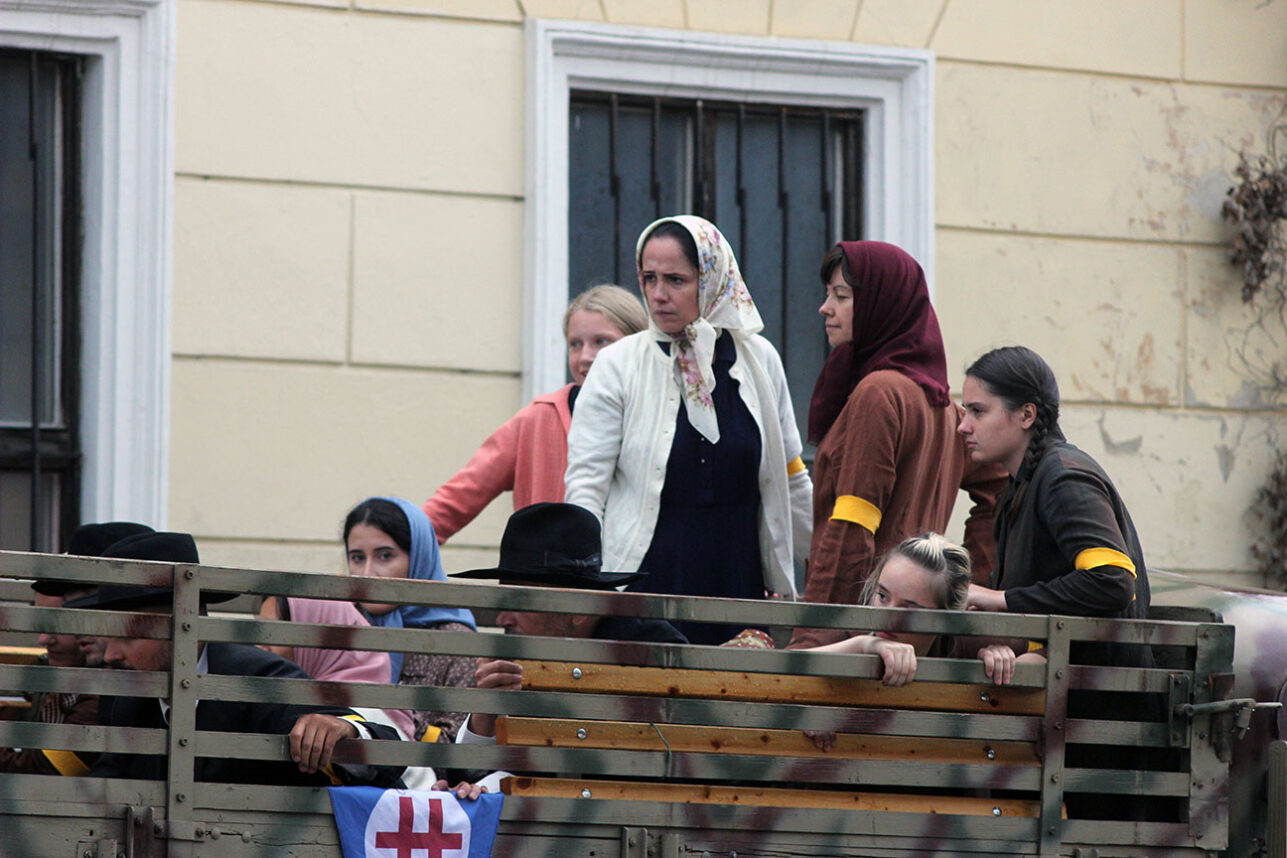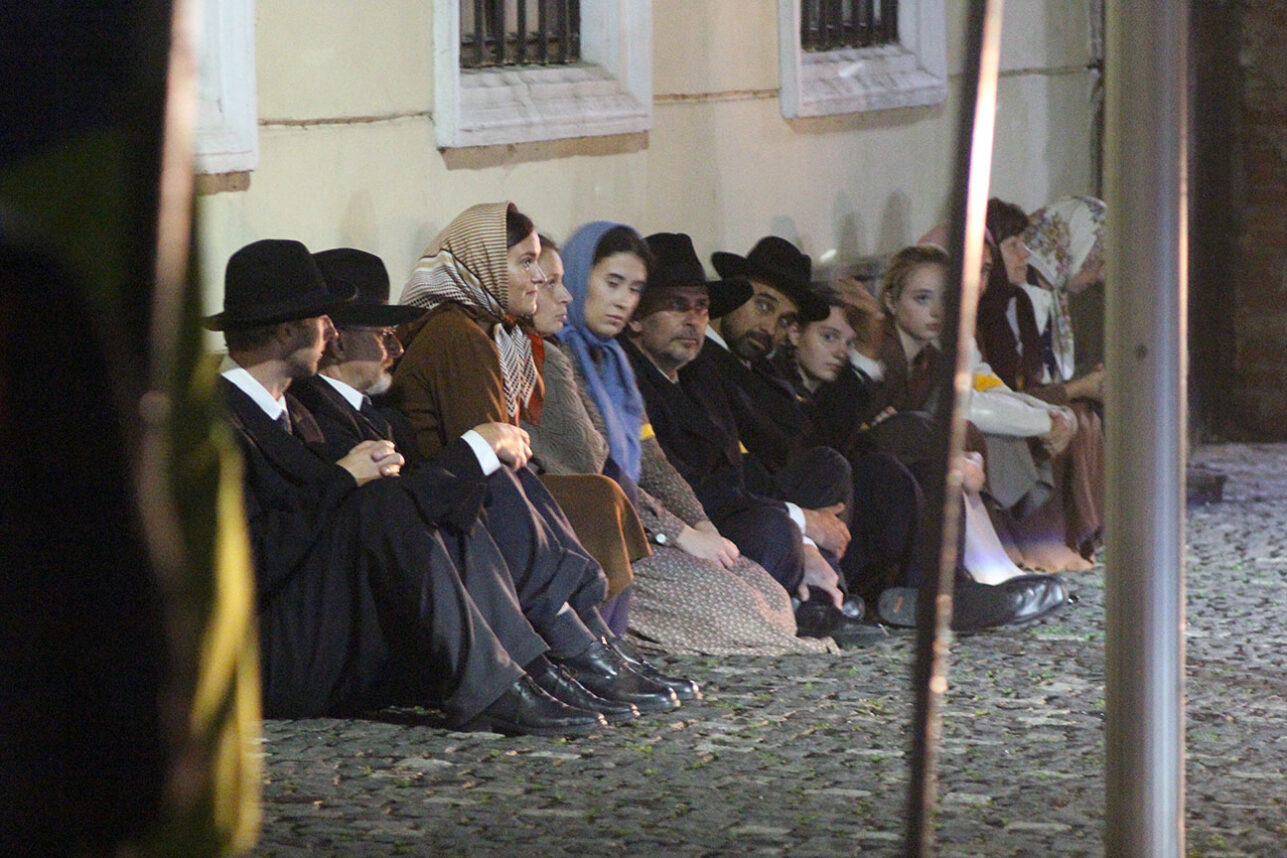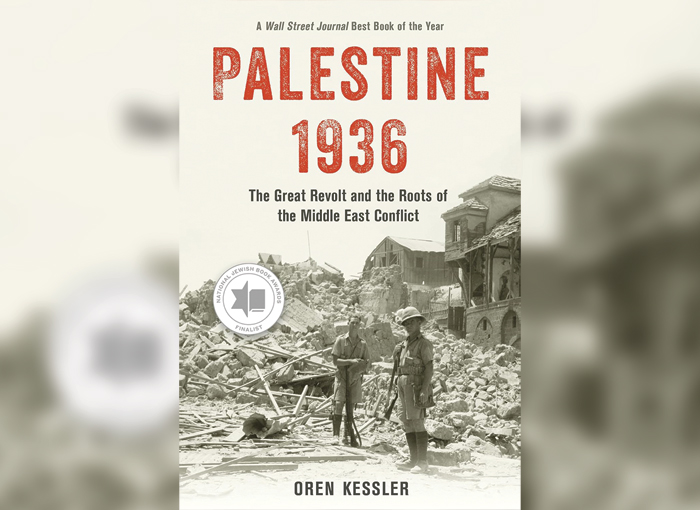 Danny A. Abeckaser and Emil Fish (Photo courtesy of: Roman Dubivský)
Danny A. Abeckaser and Emil Fish (Photo courtesy of: Roman Dubivský) The last thing Danny A. Abeckaser expected as he boarded a flight from Los Angeles to Israel was landing in Tel Aviv with a movie deal. This March 19, almost a year to the day later, “Bardejov,” the film he both directed and starred in, had its premiere.
Abeckaser, known for his roles in movies such as “The Wolf of Wall Street” and “The Irishman,” found himself seated next to an 88-year-old man named Emil Fish, who told him stories about his childhood during World War II in Bardejov, a town nestled in North-Eastern Slovakia. “It was a very interesting story of survival and the Jews of his town,” Abeckaser said.

Fish was a child when the events in the movie took place, but he remembers well all that happened during that dark time in history. When he finished telling his story, he asked Abeckaser what he does for a living and was excited to learn he is an actor/director.
“He said, listen, I have a script and I always wanted to make a film about the Jews of my town. He started explaining to me how in the last 20 years he had been building memorials in Bardejov, a museum and restored the synagogue. His entire life revolved around this. I didn’t know if I wanted to do a Holocaust film but promised to read the script. After reading it, I realized that I have to make it. It’s a story of courage and how the Jews of this town didn’t just sit back and take it, they fought back. It’s a very unique story. We all know what happened a few months afterward. They all ended up going to the concentration camps but still it shows how some Jews did resist the Nazi and for a while, succeeded.”
Filming took place in Israel and Bardejov, and Fish, who was the producer and also has a cameo in it, was on set every single day. Abeckaser took a smaller role of the town’s doctor and gave the lead part to Robert Davi, who plays Rabbi Rafuel Lowy. The film opens with a survivor who takes his family back to Bardejov to show them thetown. The story then flashes back to 1942, when Hlinka Guard soldiers are in charge of sending unmarried young Jewish women to work at a shoe factory, or at least that’s what they tell them. Their leader is Stefan Reisteiter (Dean Miroshnikov) who looks like the perfect Aryan, blonde and blue-eyed. Rabbi Lowy and other community leaders realize that they are actually going to be sent to Auschwitz and concoct a plan to stop this from happening. The script, written by Shmuel Lynn, is a compelling portrayal of ordinary people grappling with the encroaching Nazi regime.
Fish lived for 60 years in Los Angeles where he was a builder and moved to New York a few years ago and is still working. In a Zoom interview from his office he told the Journal about his home town. “Prior to the war, there were 3,000 Jews who lived in my town, in 1942, 80% of the Jews were taken away to concentration camps and only 10% survived. The Nazi didn’t need to invade Slovakia because the president at the time was Jozef Tiso who was an ally to the Germans and said he is going to collaborate with them and do whatever they asked him to.”
The Fish family was able to stay in their town until 1944 because of an exemption some of the Jews received, but as the war progressed they were taken as well. “I was sent with my mother and sister to Bergen-Belsen and my father to Buchenwald. We all survived, including most of my mother’s family but my father’s family all perished.”

Following the liberation, the family stayed in Slovakia until 1948, at which point Fish decided to make Aliyah on his own through the Zionist youth movement Bnei-Akiva, while his family was waiting to receive visas to Canada. After three years in Israel, Fish received a letter from his father telling him he must leave Israel and join the family in Canada. “By then, I felt like an Israeli, I was speaking Hebrew without an accent and wanted to join the army. I tried to resist the best I can, but my father wouldn’t hear any of it and because I was a minor, not 16 yet, I didn’t have a choice but leave Israel.”
After he graduated from a Canadian high school , the family moved to Los Angeles, where many members of Fish mother’s family lived. “I got my engineering degree, got married, had three children and became very successful builder. I was very active in the Jewish community in L.A, I served in the Federation for a while, I was the president of Hebrew Hillel Academy and of Shaarei Tefillah. I was well-known in the community and lived the American dream. And then one day, my children — who were already married and had children of their own — came to me and said: ‘Dad, everyone takes their kids on their heritage tour and all you do is take us on vacations to Hawaii or skiing and never talk to us about the Holocaust.’”
Fish admitted that hearing his children say that, made him feel guilty, but his first response was: “The only way I’m going back to Europe is by plane to Germany, where I’m going to drop down bombs.”
After thinking about it and with a little more persuasion by his kids, he agreed to go. When the family got to Bardejov, they visited the Jewish cemetery where Fish’s grandmother is buried and saw it was neglected and overgrown. “The only Jew who remained in town, passed away a few years back and there was no one to take care of it.” Fish said. “We visited the synagogue where I had my bar mitzvah and it was locked. I was told that no one has the key because the last Jew in town had passed away and didn’t leave it to anybody.”
“The Nazis killed my people but they are not going to kill my heritage because I have a control of it. It became my personal mission to restore the town.” – Emil Fish
Still, Fish managed to get in the synagogue and was overwhelmed by emotions. “It remained exactly the same, just as I remembered it. I went to see the Heder ( The Room) were I learned Torah. I was thinking of the Jewish people who lived in my town and perished. And at that moment I made a Neder (a vow); the Nazis killed my people but they are not going to kill my heritage because I have a control of it. It became my personal mission to restore the town.”
Fish now serves as the founder of the Bardejov Jewish Preservation Committee.
Abeckaser, who was born in Israel and lived up in Brooklyn since he was 9 years-old, was a club promoter and, later, a nightclub owner, before turning a full-time actor. He had small parts in movies such as ‘Alpha Dog’ and ‘You Don’t Mess With the Zohan’ before landing his big film role in “Holy Rollers” (2010), which he also produced. Since then, he has appeared in many films and directed eight.
Making a film about the Holocaust in today’s antisemitic atmosphere, he said he hopes people will have a better understanding of how important Israel is for the Jews and what antisemitism can lead to. Thinking about director Jonathan Glazer’s acceptance speech for his film, “The Zone of Interest,” at the Oscars, he said: “What this man did have ruined so much for us. The world doesn’t understand what really happened on Oct. 7. People are going on demonstrations against Israel without understanding what they are demonstrating about; they are getting paid $80-$100 to go out and rally against Israel. Hollywood doesn’t stand with the right side, and it’s too bad, but I’m not going to stop my life and think why it’s happening. I’m doing what I have to do, like posting my opinion on social media and making films. I believe that this film is very important, especially now, and I hope that people will watch it and understand what antisemitism is and why it is so important not to keep silent in its face.”
Bardejov is now available for streaming on Apple TV, Vudu and Prime Video






















 More news and opinions than at a Shabbat dinner, right in your inbox.
More news and opinions than at a Shabbat dinner, right in your inbox.